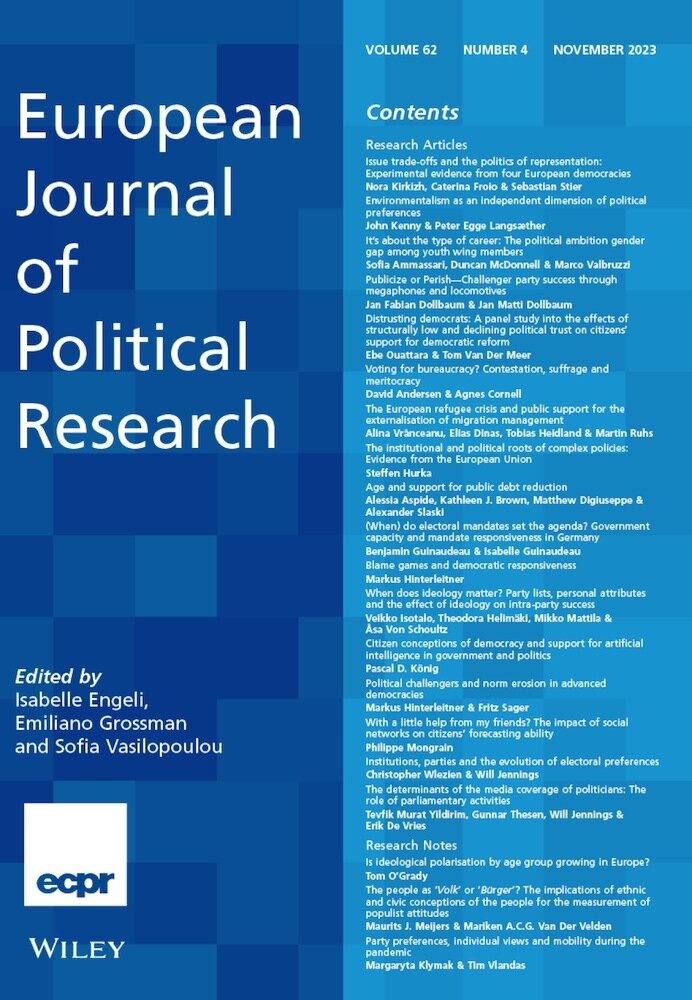Technocrat or partisan cabinet ministers: Does it make a difference? Evidence from an endorsement experiment with the bureaucracy.
This article analyses how high-level bureaucrats evaluate the leadership of technocrat and partisan cabinet ministers in different roles of policymaking. The argument is that bureaucrats perceive ministers with policy expertise to have a central role in policymaking, especially in policy-directing tasks. Despite their essential contribution to coalition formation, ministers with political experience are negatively evaluated in all policymaking roles. The article presents evidence based on an endorsement experiment conducted with the high-level bureaucracy in Brazil. The results show that ministers with policy experience receive positive evaluations from the bureaucracy in policy formulation and implementation roles but not to carry out political coordination activities with the presidency or the legislature. Ministers with a partisan profile receive negative evaluations in all tasks of the policy process. Exploring the mechanism, we show that the negative assessment of ministers with a partisan profile is maintained even when the profile of the bureaucrat is considered. These results show the negative attitudes of high-level bureaucrats towards partisan ministers in contexts of substantial patronage and corruption and contribute to the debate on ministerial appointments and their implications for policymaking.
Batista, Mariana. Technocrat or partisan cabinet ministers: Does it make a difference? Evidence from an endorsement experiment with the bureaucracy. European Journal of Political Research. 2023.


